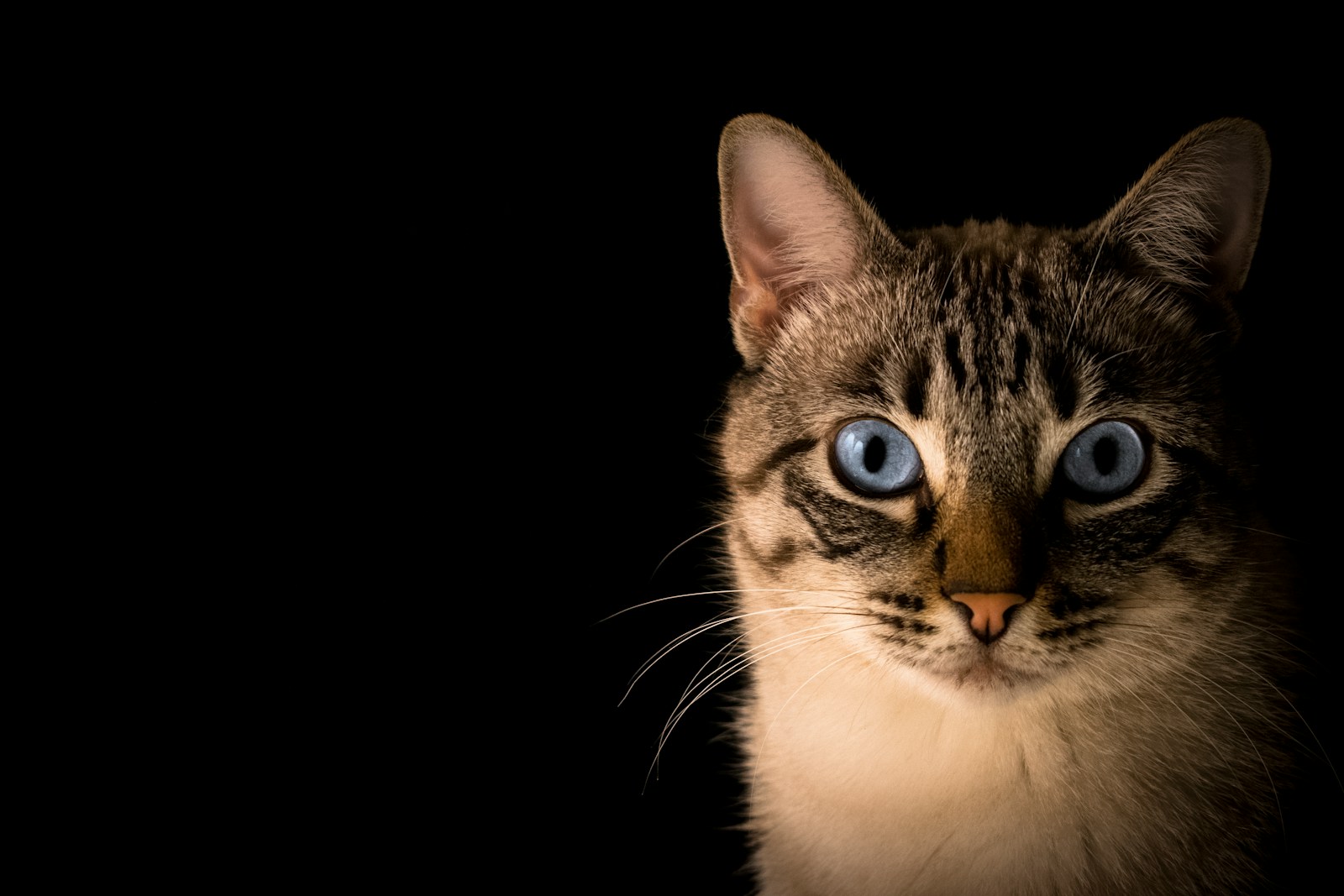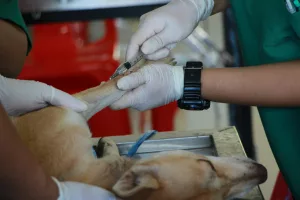As a cat owner, you are likely familiar with the various quirky behaviors that our feline friends exhibit. One particularly interesting behavior that some cats display is licking the air. You may have observed your cat engaging in this seemingly odd behavior and wondered what it means. While it may appear strange to us, there are actually a few reasons why cats lick the air. Cats are mysterious creatures with behaviors that often leave us scratching our heads. But as with most feline behaviors, air licking has its roots in instinct, health, and environment. Understanding these nuances not only satisfies our curiosity but also helps in ensuring the well-being of our whiskered companions.
Understanding the Flehmen Response
The Flehmen response is a fascinating anatomical feature that allows cats to deeply analyze scents and pheromones. When a cat exhibits this behavior, it curls back its lips, slightly opens its mouth, and often appears to be licking the air. This action isn’t just random—it’s a deliberate attempt to engage the vomeronasal organ located on the roof of the mouth.
Why Scents Matter
Cats rely heavily on their sense of smell to interpret the world. Scent marks left by other animals, humans, or even environmental changes can carry a wealth of information. By engaging in the Flehmen response, your cat is essentially “tasting” the air to gather more details about its surroundings.
Practical Observations
If you notice your cat engaging in this behavior after sniffing a particular spot, it might be reacting to a new scent. Perhaps you’ve brought in a new piece of furniture, or another pet has visited your home. Understanding this can help you identify what might be intriguing or troubling your cat. For instance, a friend of mine noticed her cat air licking intensely after she bought a vintage armchair. It turned out the chair carried the scent of a previous owner’s pet, which was enough to keep her cat fascinated for days.
Dental Health Concerns
Dental issues are a common yet often overlooked reason for air licking. Cats are adept at masking pain, and oral discomfort might manifest in subtle ways like licking the air.
Signs of Dental Trouble
Beyond air licking, you might notice other signs such as:
- Drooling: Excessive saliva can indicate oral pain.
- Bad Breath: Persistent foul odor can be a sign of dental disease.
- Changes in Eating Habits: Reluctance to eat or dropping food may suggest discomfort.
Taking Action
Regular dental check-ups can prevent and identify issues early. If you suspect dental problems, consult your vet for a thorough examination. Early intervention can prevent more serious health issues down the line. For example, my own cat, Whiskers, started air licking and drooling, leading us to discover a severe case of gingivitis. A timely dental cleaning and treatment plan saved her from more painful complications.
Neurological Causes
In some cases, excessive air licking in cats could be a result of underlying neurological issues. Conditions such as seizures, compulsive disorders, or even cognitive dysfunction can manifest in abnormal behaviors like air licking.
Recognizing Neurological Symptoms
Cats with neurological issues may display:
- Disorientation: Wandering aimlessly or appearing confused.
- Behavioral Changes: Sudden aggression or withdrawal.
- Increased Vocalization: Meowing more frequently or sounding distressed.
Seeking Veterinary Help
If your cat exhibits persistent and intense air licking episodes, it is advisable to seek professional veterinary advice to rule out any potential neurological causes. Your vet might recommend diagnostic tests, including blood work or neurological exams, to determine the root of the problem. A neighbor’s cat, Mittens, was diagnosed with a mild seizure disorder after exhibiting excessive air licking and confusion. With medication, Mittens’ symptoms became manageable, and his quality of life improved significantly.
Stress and Anxiety
Cats are sensitive creatures that can easily become stressed or anxious in certain situations. Air licking can be a self-soothing behavior for cats experiencing stress or anxiety.
Identifying Stressors
Common stressors include:
- Environmental Changes: Moving to a new home or rearranging furniture.
- New Family Members: Introduction of new pets or babies.
- Routine Disruptions: Changes in feeding or play schedules.
Creating a Calming Environment
To help alleviate stress:
- Consistent Routine: Stick to regular feeding and play times.
- Safe Spaces: Provide hiding spots or high perches where your cat can retreat.
- Calming Products: Consider pheromone diffusers or calming sprays designed for cats.
Creating a calming environment can have profound effects. When my friend Sarah moved apartments, her cat Felix began licking the air frequently. By establishing a consistent routine and using pheromone sprays, Sarah noticed Felix gradually becoming more relaxed and reducing his air licking behavior.
Gastrointestinal Issues
Occasionally, cats may lick the air as a response to gastrointestinal discomfort or nausea. Cats with stomach upset may exhibit behaviors like air licking, excessive salivation, or even vomiting.
Recognizing Digestive Distress
Look for signs such as:
- Changes in Appetite: Eating less or more than usual.
- Vomiting: Frequent or recurring episodes.
- Litter Box Habits: Diarrhea or constipation.
Dietary Considerations
Consult your veterinarian to rule out any underlying health issues. They may recommend dietary changes or prescribe medication to ease gastrointestinal discomfort. Providing a balanced diet tailored to your cat’s needs can prevent many digestive issues. A cat I once fostered, Bella, had a sensitive stomach and would air lick when nauseous. Switching her to a sensitive stomach formula diet made a world of difference.
Other Considerations and Tips
Allergies and Environmental Factors
Sometimes, allergies or irritants in the environment can cause a cat to lick the air. Dust, pollen, or certain cleaning agents may trigger a reaction.
- Monitor Exposure: Note any patterns related to air licking and possible allergens.
- Ventilation and Cleanliness: Ensure good air circulation and regular cleaning to minimize allergens.
For instance, if your cat starts air licking after you’ve cleaned with a new product, consider switching to a pet-safe alternative. I once switched my floor cleaner to a natural, pet-friendly brand after noticing my cat, Luna, reacting with air licking and sneezing.
Play and Distraction
If your cat’s air licking doesn’t seem tied to health issues, consider it a quirk or habit. Engaging your cat in play can redirect energy and provide mental stimulation.
- Interactive Toys: Use wand toys or laser pointers to keep your cat active.
- Puzzle Feeders: Stimulate your cat’s mind while providing treats.
Engaging activities can be a great distraction for habitual air lickers. My cousin’s cat, Shadow, found great satisfaction in interactive play, which significantly reduced his air licking episodes.
A Deeper Look into the Cat’s World
Behavioral Enrichment
Feline behavior can be complex, and enrichment plays a critical role in their mental health. Cats are natural hunters and explorers, and providing them with opportunities to engage in these instincts can reduce stress and odd behaviors.
- Climbing and Perches: Cats love heights, so cat trees or window perches can offer new vantage points and satisfy their climbing instincts.
- Scratching Posts: Not only do they keep claws healthy, but they also provide a way for cats to mark their territory through scent glands in their paws.
By enhancing your cat’s environment, you might find a decrease in stress-related behaviors like air licking. When I installed a window perch for my cat, Simba, he spent more time bird-watching and less time engaging in quirky behaviors.
Understanding Feline Communication
Cats communicate in subtle ways, and air licking might be a part of this complex language. Observing your cat’s body language and vocalizations in conjunction with air licking can offer clues to their emotional state.
- Tail Language: A high, twitching tail often indicates excitement, while a puffed-up tail can signal fear or aggression.
- Ear Position: Forward-facing ears suggest curiosity or contentment, whereas flattened ears indicate fear or irritation.
By understanding these signs, you can better interpret your cat’s actions and respond appropriately.
Veterinary Insights and Preventive Care
Regular Health Checks
Routine veterinary visits are crucial in maintaining your cat’s health and catching potential issues early. Even if your cat seems healthy, regular check-ups can prevent many problems.
- Annual Exams: Regular check-ups can catch changes in behavior or health before they become serious.
- Vaccinations and Parasite Control: Keeping up with vaccinations and parasite prevention is essential for your cat’s overall health.
A friend of mine was diligent with her cat’s annual exams, which led to the early detection of a thyroid issue manifesting as unusual behaviors, including air licking.
Working with a Behaviorist
In some cases, consulting with a feline behaviorist can provide insights into persistent or puzzling behaviors. These professionals can offer tailored strategies to address specific issues, including stress-related behaviors.
- Behavior Modification Plans: Customized plans can help alter unwanted behaviors through positive reinforcement and environmental changes.
- Support and Guidance: A behaviorist can offer ongoing support and adjustments to the plan as needed.
If you’ve tried everything and your cat’s air licking persists, reaching out to a professional might be the next best step. A cat owner I knew was able to significantly reduce her cat’s stress-induced air licking with the guidance of a behaviorist.
By being attentive and proactive, you can ensure that your cat’s quirky habits are just that—quirks, rather than signs of underlying issues. Sharing your life with a cat means embracing their unique behaviors, understanding their needs, and providing a nurturing environment. Whether it’s a sign of curiosity or a call for help, your attention can make all the difference in your cat’s health and happiness.




